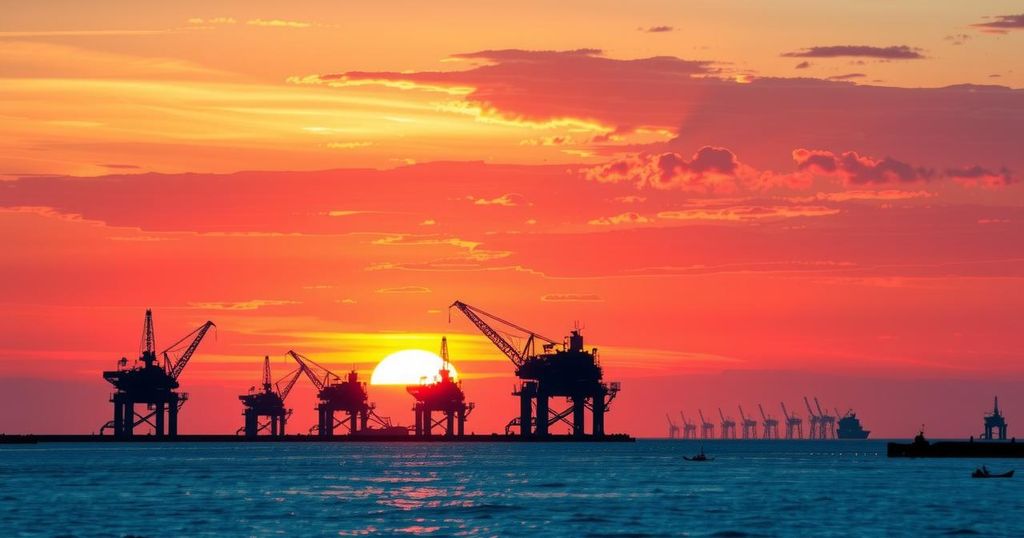President Trump’s revival of the ‘maximum pressure’ strategy on Iran targets its oil exports to weaken the regime’s financial power and diminish support for terrorism and nuclear ambitions. Current global oil market conditions, including high spare capacity among producers and reduced demand, make this an opportune moment to implement these sanctions. The strategy may foster domestic dissent in Iran while collaborating with allies to maintain price stability in the oil market.
The reinstatement of “maximum pressure” on Iran’s oil exports by U.S. President Donald Trump has marked a significant shift in foreign policy focus. This initiative aims to cripple Iran’s financial resources, primarily targeting its oil industry which funds terrorist proxies, domestic repression, and a potential nuclear weapons program. The current economic landscape, combined with a fragile Iranian economy, suggests this strategy could effectively destabilize Iran’s power.
Iran’s economic frailty is exacerbated by its reliance on a single buyer, China, for nearly all of its 1.6 million barrels per day export. The current oil market conditions—with an over-supply from global production and a spare capacity of 5-6 million barrels within OPEC+ countries—present an opportune moment to reduce Iranian oil exports without causing global market disruptions. This removal could enhance internal dissent in Iran and reduce its capabilities internationally.
There exists a window for the U.S. to exert pressure on Iran without significantly impacting domestic consumers or international allies. The increased production from countries outside OPEC+, along with forecasts of market surplus, mitigates potential risks. With stabilization efforts from OPEC+, any quick ramp-up in production could safeguard against price inflation, thereby lessening political backlash against the administration.
Promoting the withdrawal of Iranian barrels is a dual strategy that protects the U.S. oil industry while simultaneously compounding Iran’s economic malaise. This can help maintain moderate oil prices, thereby preventing the kind of market crash experienced in previous years that adversely affected U.S. interests. Consequently, the U.S. can strategically weaken Iran while fostering stability within its own energy sector.
Moreover, Iran’s oil industry is significantly diminished due to sanctions and investment shortages. Producing capacities, which historically reached 3.8 mb/d, are dwindling, with potential to drop below critical levels within the next few years. Iran faces a critical juncture where it may soon have to decide between maintaining domestic supply or oil exports, making this an especially crucial time for such international economic pressure.
Disrupting Iran’s oil sector extends beyond financial means; it serves as leverage for broader strategic objectives. By amplifying economic challenges, the initiative could instigate domestic unrest within Iran, forcing the government to reprioritize its expenditure, thereby addressing destabilizing foreign activities. This combination of economic and political stratagems could provoke concessions from Tehran.
The current geopolitical and economic climate provides the United States with an unprecedented opportunity to reshape its Iran policy. With high vulnerabilities and a capacitated oil market, the U.S. can effectively undermine Iran’s ambitions, potentially leading towards a more secure geopolitical environment in the region.
In summary, President Trump’s recommitment to a maximum pressure campaign on Iran’s oil exports is timely due to the prevailing vulnerabilities of Iran’s economy and favorable global oil market conditions. By targeting Iran’s primary source of revenue while safeguarding domestic energy interests, the United States can significantly impact Iran’s capacity for destabilizing activities. This holistic approach not only serves to weaken Iran but also creates pathways toward potential strategic concessions.
Original Source: www.atlanticcouncil.org




